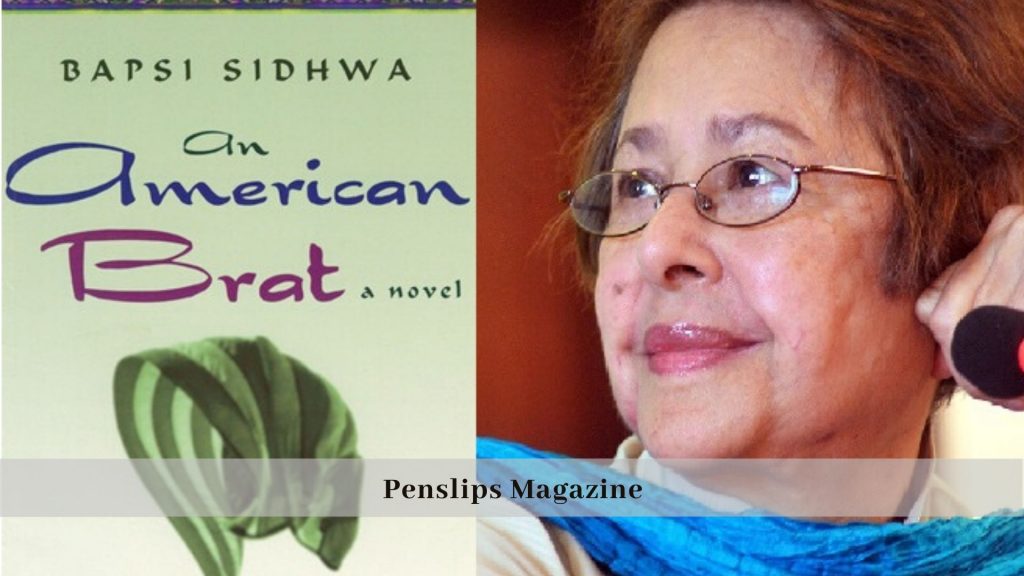
An American Brat by Bapsi Sidhwa: Book Review
An American Brat by Bapsi Sidhwa is an insightful account of the experience of a young immigrant from Pakistan to the United States in the 70s. The novel also touches upon the reservations and anxiety experienced by different sects in Pakistan due to the change from Bhutto’s liberal era to Zia’s conservative one.
The title of the novel, An American Brat, is very clever. It makes us think that it’s going to be the tale of a bratty immigrant girl. But, we’re in for a pleasant surprise.
The title also, in an uncanny way, makes one realize that what brat is for a first-world citizen is not what brat encompasses for a third world person.
The plot of the story is easy to follow. Set in the 1970s, it revolves around the protagonist, Feroza. Feroza is a 16-year-old Parsi girl whose changing personality is alarming for her liberal, confident Parsi parents.
Due to the country’s increasing intolerance for minorities with misuse of Hadood ordinance against them, there is a feeling of suffocation in the drawing rooms of the upper-middle-class liberals.
Feroza’s parents are concerned about the increasing insecurity and Feroza’s disabling shyness and self-doubt. So she is packed away to her uncle in the US, hoping that
Travel will broaden her outlook, get this puritanical rubbish out of her mind.
Thus, begins the story of Feroza’s experiences in another world, quite different from the one she had come. For a long way into the novel, I kept wondering if the theme was anything but the obvious one.
It feels more like the narration of the life of a young girl with nothing extraordinary happening. The whole theme of the novel revolves around the exhilarating freedom and profound sense of loss to which an immigrant can surely relate to.
The cross-cultural clash is well captured in detail. Political reference, though outdated, succeeds to elicit the drastic change in the lives and minds of people during Zia’s conservative rule.
Given Feroza’s involvement in politics, so much so, that she keeps Bhutto’s poster at her bedside, one expects to read about her interest in US politics of the time as well.
The pace of the story is on average fast, so it does not bore the reader to the extent to give up. Some portions are entertaining, witty, and smart. The cross-cultural problems faced by immigrants and family pressure are portrayed vividly.
The tone of the novel is mostly apathetic, and one fails to relate to the feelings of various characters save a few instances. The reader is, however, kept engaged by multiple events, big and small, though as a reader, you are unable to enjoy their full intensity.
The novel has its moments too. When the immigration interrogates Feroza, her horrible experience into the fire stairs and her funny bantering with Manek all render the story enjoyable in spurts.
I wanted to read more about Feroza, but what we get is a clichéd chain of events. Feroza is dazed by the splendor of the New World, learns to live independently, meets a boy, cultural tiff, gets heartbroken, and goes on with life.
We read the word freedom many times across the book, but what that actual experience of freedom was for Feroza? It seems the extent of her freedom was embodied in one person, David, which I don’t expect from Sidhwa’s novels.
The central theme of the novel appears to be the identity and loyalty problems faced by young immigrants, torn between their family, traditions, and self-identity. She had shed:
the thousand constraints that governed her life
back in Pakistan. With her own money and career, she was discovering her identity, i.e., transforming into an American Brat by Pakistani standards of the 70s.
It is interesting to see that Feroza’s mother, Zareen, also gets sucked into this feeling of unselfconsciousness momentarily.
We see this identity struggle, cultural tiff, and sexism in Parsi culture (though not unique to it) from three different angles.
Zareen is an elder who seems to question the old age customs in her hearts of heart but can’t bring herself to revolt.
Manek, who being a man has certain liberties that simplify life for him.
And finally, Feroza, who being a girl cannot ignore the contradictions, but her revolt is not allowed to succeed as well.
From the traditional Parsi houses, the lavish way of upper-middle-class, the close-knit Parsi community to the skyscrapers and shopping giants of America, the splendor at the Madison or the Bloomingdale’s to the reeking poverty at the terminal of the 8th Avenue, it was all painted brilliantly for the reader; by far the strongest feature of this book.
It gives an enlightening and detailed account of the Parsi and Zoroastrian religion. The cultural fears and situations occurring in the novel must have struck a chord with the second generation Parsi living abroad.
The characters in the story are very much relatable on many levels. Feroza and Manek represent the young Parsi generation but may easily represent any young girl and boy, their experiences, their struggle for existence in the First World, and their amazement at everything foreign.
Bapsi Sidhwa is an eminent Pakistani writer and has a first-hand experience of both Pakistani and American culture that shows itself strongly in An American Brat. However, one expects more from her. For those who are just starting to read, Sidhwa should better start with The Crow Eaters.
Sonia Ahmed is a short story writer and critic. She writes fiction that stays true to the non-fictitious unvoiced sections of the society. She enjoys writing opinion articles close to her heart. Health and fitness writer by day, she looks for positivity in this increasingly chaotic world.
Read more from Sonia Ahmed
Read more Book Reviews